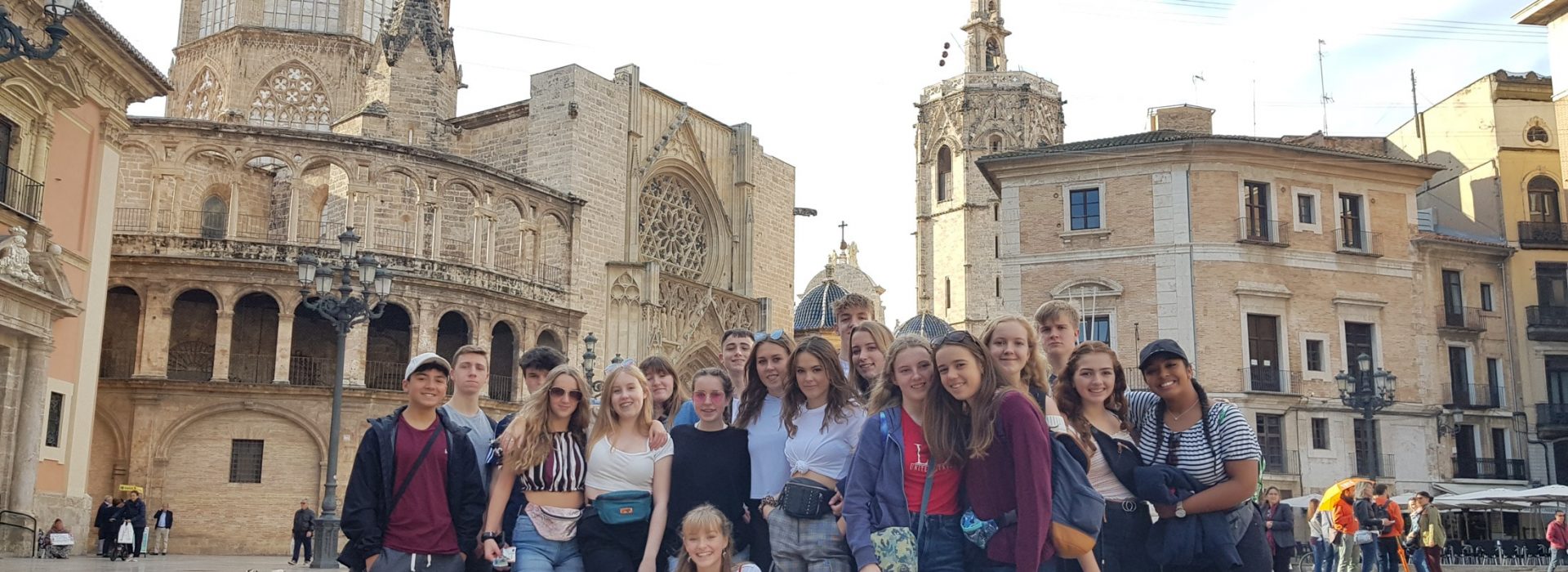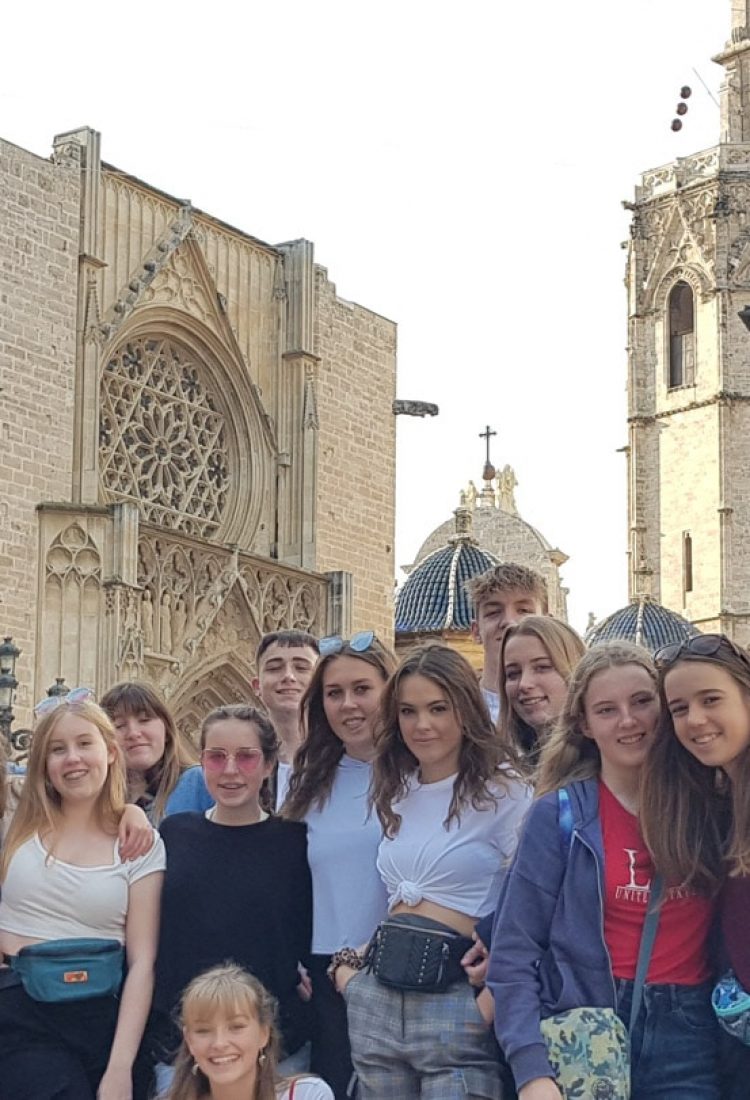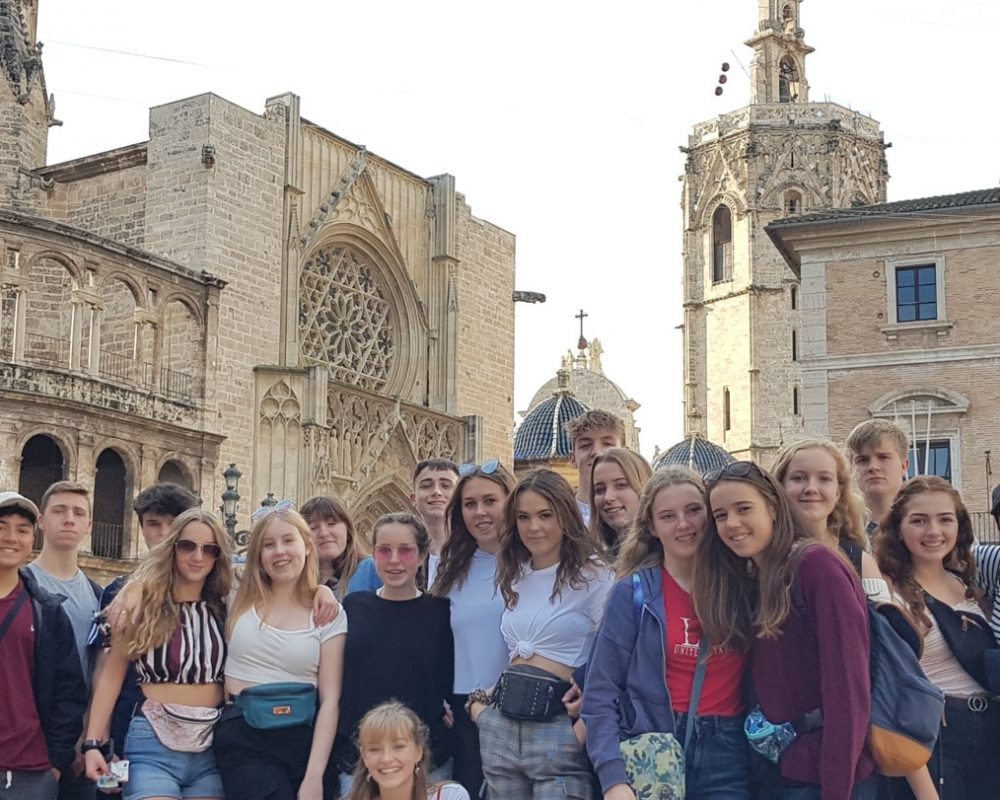Exam Board: Edexcel
What does the course consist of?
After English, Spanish is the second largest language in the world by geographical distribution. It is the first language of most countries of the American continent and has even unofficially overtaken English as the principal language in some southern parts of the United States. Given the importance of Spanish in today’s globalised reality, the GCSE focusses on providing students with the core skills they will need to communicate and understand in any situation. The course consists of opportunities for pupils to develop the ability to understand and use Spanish effectively for the practical purposes of communication while developing an awareness of the nature of language and language learning. The course also offers insights into the culture and civilisation of Spain and Spanish speaking countries. The list of topics in Spanish is as follows:
Theme: Identity and culture
- Who am I?: relationships; when I was younger; what my friends and family are like; what makes a good friend; interests; socialising with friends and family; role models
- Daily life: customs and everyday life; food and drink; shopping; social media and technology (use of, advantages and disadvantages)
- Cultural life: celebrations and festivals; reading; music; sport; film and television
Theme: Local area, holiday and travel
- Holiday preferences, experiences and destinations
- Travel and tourist transactions: travel and accommodation; asking for help and dealing with problems; directions; eating out; shopping
- Town, region and country: weather; places to see; things to do
Theme: School
- What school is like: school types; school day; subjects; rules and pressures; celebrating success
- School activities: school trips, events and exchanges
Theme: Future aspirations, study and work
- Using languages beyond the classroom: forming relationships; travel; employment
- Ambitions: further study; volunteering; training
- Work: jobs, careers and professions
Theme: International and global dimension
Bringing the world together: sports events; music events; campaigns and good causes / Environmental issues: being ‘green’; access to natural resources.
Assessment and Coursework
Assessment in all four skills will take place at the end of year 11. There is no coursework.
LISTENING
Students are assessed on their understanding of standard spoken Spanish by one or more speakers in a range of public and social settings. Students will respond to multiple-response and short-answer open response questions based on a recording featuring male and female Spanish speakers
SPEAKING
Students are assessed on their ability to communicate and interact effectively through speaking in Spanish for different purposes and in different settings.
Task 1 – a role play
Task 2 – questions based on a picture stimulus
Task 3 – conversation based on two themes. The first theme is based on the topic chosen by the student in advance of the assessment. The second theme is allocated by Pearson.
READING
Students are assessed on their understanding of written Spanish across a range of different types of texts, including advertisements, emails, letters, articles.
WRITING
Students are assessed on their ability to communicate effectively through writing in Spanish for different purposes and audiences. Students are required to produce extended responses of varying lengths and types to express ideas and opinions in Spanish.
Skills
Spanish at GCSE will enable you to speak and understand Spanish at a good level for practical communication. The course will also develop your ability to memorise, analyse, draw inference and adapt language, as well as to empathise with a different nationality and culture.
Careers
Practically any job can involve languages whether based in the UK or abroad. Industries which are more globalised in nature and those dealing with non-English speaking customers offer opportunities for people with language skills. This also applies to companies which are web-based, trading internationally, or foreign-owned.
Although languages may be no substitute for specific training, for example in professions such as accountancy, medicine, law and journalism, it may be impossible to do the job well without an effective working knowledge of the language(s) pertinent to the organisation or job.
Other Information
Given the recent political developments regarding Brexit, it is likely that fewer students in the UK will consider studying languages to an intermediate level. For this reason, those students who decide to pursue Spanish will find themselves with little or no competition when applying for jobs that require knowledge of the language. Paradoxically, despite the UK’s impending withdrawal from the European Union, a working knowledge of Spanish will provide students with an invaluable means to access jobs and careers that will be inaccessible to their non-linguist peers.
You may well learn a different language to Spanish in the future and your skills developed during your GCSE Spanish course will help you to be an effective learner.


